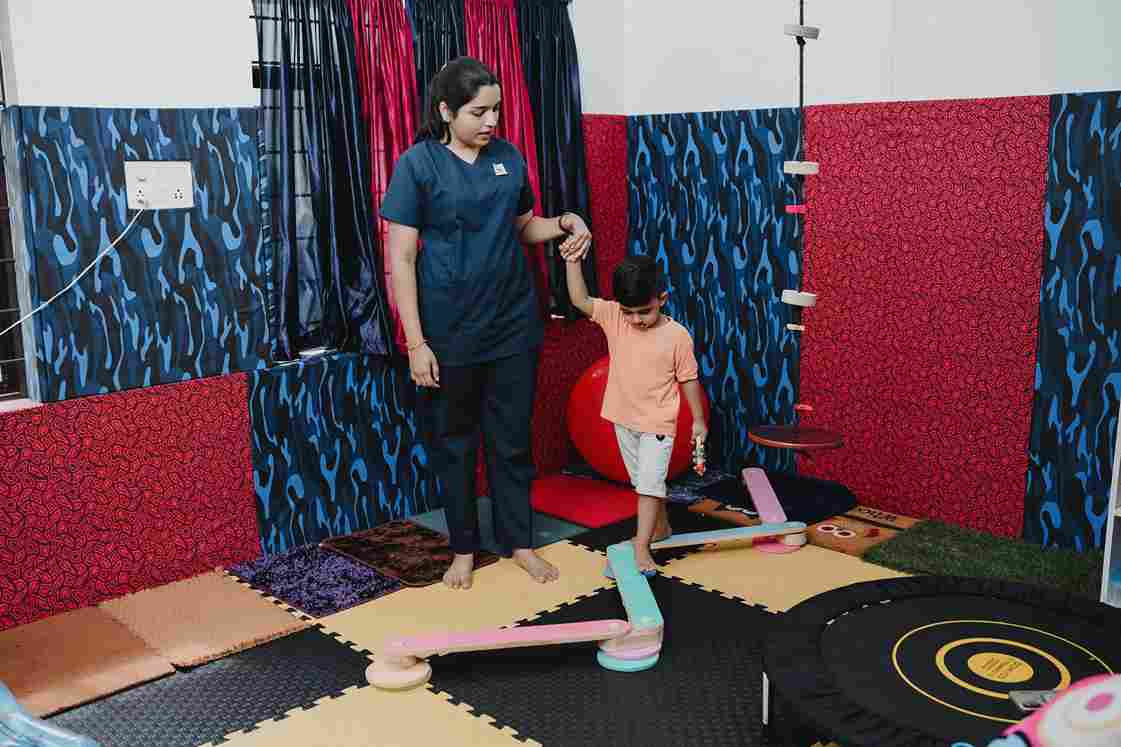
Occupational therapy (OT) plays a vital role in paediatrics, aims to help children develop, recover, or maintain skills necessary for daily living, play, and learning. Our Paediatric Occupational therapists work with children from birth to adolescence, addressing various challenges that impact their daily functioning, participation, and overall well-being.
Some key areas paediatric occupational therapists focus on include:
1. Developmental delays: Helping children catch up on developmental milestones, such as sitting, crawling, walking, and using their hands.
2. Sensory processing: Assisting children with sensory processing disorder (SPD) to better integrate and process sensory information from their environment.
3. Fine motor skills: Improving hand-eye coordination, dexterity, and manipulation skills for activities like writing, drawing, and using utensils.
4. Gross motor skills: Enhancing overall physical abilities, such as balance, coordination, and mobility.
5. Daily living skills: Teaching children self-care skills, like dressing, feeding, and hygiene.
6. Play and social skills: Fostering playfulness, social interaction, and communication skills.
7. Adaptive equipment and technology: Recommending and training children to use assistive devices, like wheelchairs, walkers, or communication devices.
If you’re a parent or caregiver, consider consulting a pediatric occupational therapist if you notice your child struggling with:
- Developmental delays
- Sensory sensitivities or difficulties
- Fine or gross motor skill challenges
- Daily living skills
- Social interactions or play
Our therapists are taking a comprehensive and collaborative approach to understanding each patient's strengths, challenges, and needs
By using a combination of:
1. Standardized assessment tools (e.g., developmental assessments, behavioral rating scales)
2. Non-standardized assessment tools (e.g., play-based assessments, observations)
3. Clinical observations
4. Parental/guardian interviews
5. Discussions with school teachers and other professionals
This holistic approach can help identify areas for intervention and inform personalized treatment plans. Interventions are tailored to each child’s unique needs and goals, promoting functional skills, independence, and participation in daily activities.